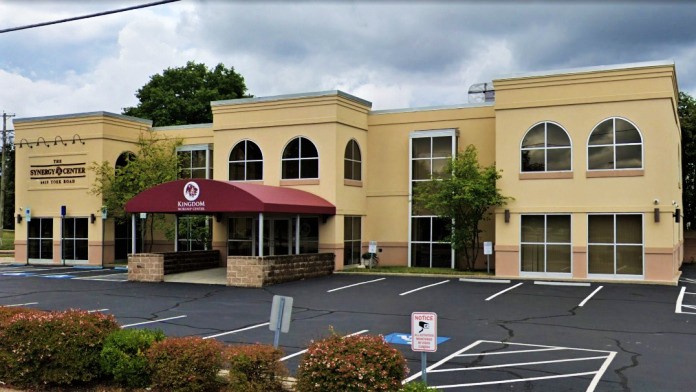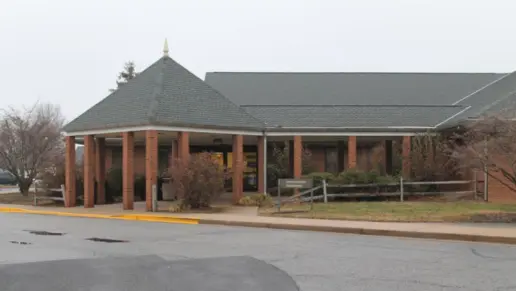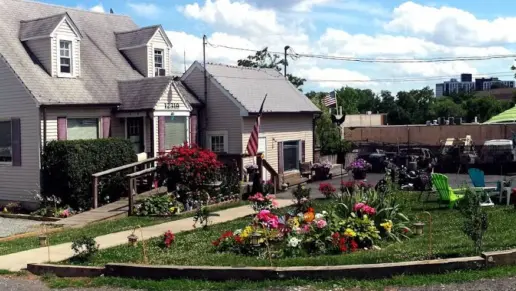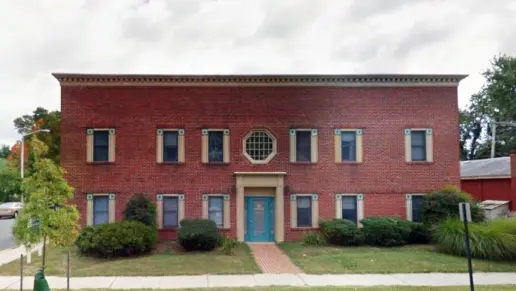The people working here are not qualified to treat people with delicate conditions like mine, they clearly don't understand how delicate and difficult it is to get over an addiction problem.
About REK Advanced Therapeutic Solutions
The Towson Campus of REK Advanced Therapeutic Solutions is located in Baltimore, Maryland. They provide medication assisted treatment (MAT) to adults who have struggled with opioid misuse for at least a year. This is a voluntary treatment program.
MAT For Recovery From Opioid Use Disorder
REK’s primary treatment method is the use of FDA approved medication to manage cravings and help you avoid relapse during treatment. The program also includes education on prevention and substance use counseling along with education on HIV and Hepatitis C transmission.
One unique element of this program is that they also provide vocational rehabilitation and employment services as well as educational support. These services help people not only recover from substance use but also land on their feet so they can build a productive and independent life. Having appropriate employment goes a long way toward helping people maintain recovery.
They also offer residential housing for those who qualify, which can help clients learn to live independently in a sober environment. The sober environment can also support clients and help them avoid relapse.
Medical Services and Additional Support for Recovery
It’s also interesting that REK offers primary medical care to clients. They can provide you with yearly exams, care for common ailments, screenings for mental and physical health conditions and chronic care management.
They also have classes that go beyond the usual evidence based counseling. You can attend motivational sessions, life skills classes and programs that help you manage life independently and productively. These services help you establish and maintain long term recovery.
Rehab Score
Gallery

Other Forms of Payment
Self-pay involves paying for treatment out of your own pocket. You can use savings or credit, get a personal loan, or receive help from family and friends to fund your treatment. If you don't have insurance or your insurance plan doesn't cover a specific program, self-pay can help ensure you still get the care you need.
Private insurance refers to any kind of healthcare coverage that isn't from the state or federal government. This includes individual and family plans offered by an employer or purchased from the Insurance Marketplace. Every plan will have different requirements and out of pocket costs so be sure to get the full details before you start treatment.
Medicaid is a state based program that helps lower-income individuals and families pay for healthcare. Medicaid covers addiction treatment so those enrolled can use their coverage to pay for rehab. When a program accepts Medicaid the client often pays very little or nothing out of their own pocket.
Medicare is a federal program that provides health insurance for those 65 and older. It also serves people under 65 with chronic and disabling health challenges. To use Medicare for addiction treatment you need to find a program that accepts Medicare and is in network with your plan. Out of pocket costs and preauthorization requirements vary, so always check with your provider.
Addiction Treatments
Levels of Care
 Intensive Outpatient
Intensive Outpatient
 Outpatient
Outpatient
Treatments
The goal of treatment for alcoholism is abstinence. Those with poor social support, poor motivation, or psychiatric disorders tend to relapse within a few years of treatment. For these people, success is measured by longer periods of abstinence, reduced use of alcohol, better health, and improved social functioning. Recovery and Maintenance are usually based on 12 step programs and AA meetings.
Once a person has become addicted to a substance, drug rehab in Maryland is often necessary to overcome that addiction. These programs provide the tools individuals need to manage the physical, mental, and emotional issues involved and begin a successful recovery journey.
Many of those suffering from addiction also suffer from mental or emotional illnesses like schizophrenia, bipolar disorder, depression, or anxiety disorders. Rehab and other substance abuse facilities treating those with a dual diagnosis or co-occurring disorder administer psychiatric treatment to address the person's mental health issue in addition to drug and alcohol rehabilitation.
Opioid rehabs specialize in supporting those recovering from opioid addiction. They treat those suffering from addiction to illegal opioids like heroin, as well as prescription drugs like oxycodone. These centers typically combine both physical as well as mental and emotional support to help stop addiction. Physical support often includes medical detox and subsequent medical support (including medication), and mental support includes in-depth therapy to address the underlying causes of addiction.
Substance rehabs focus on helping individuals recover from substance abuse, including alcohol and drug addiction (both illegal and prescription drugs). They often include the opportunity to engage in both individual as well as group therapy.
Programs

Adult Program

Young Adult Program
Clinical Services
Research clearly demonstrates that recovery is far more successful and sustainable when loved ones like family members participate in rehab and substance abuse treatment. Genetic factors may be at play when it comes to drug and alcohol addiction, as well as mental health issues. Family dynamics often play a critical role in addiction triggers, and if properly educated, family members can be a strong source of support when it comes to rehabilitation.
Group therapy is any therapeutic work that happens in a group (not one-on-one). There are a number of different group therapy modalities, including support groups, experiential therapy, psycho-education, and more. Group therapy involves treatment as well as processing interaction between group members.
In individual therapy, a patient meets one-on-one with a trained psychologist or counselor. Therapy is a pivotal part of effective substance abuse treatment, as it often covers root causes of addiction, including challenges faced by the patient in their social, family, and work/school life. Many people experience therapy for the first time during treatment. The benefits of individual therapy are self-awareness, stress management, developing communication skills, addressing trauma, identifying possible underlying issues, overcoming shame about substance use and repairing damaged relationships.
Amenities
-
Private Setting
Accreditations

The Commission on Accreditation of Rehabilitation Facilities (CARF) is a non-profit organization that specifically accredits rehab organizations. Founded in 1966, CARF's, mission is to help service providers like rehab facilities maintain high standards of care.
CARF Accreditation: Yes
Contact Information
6419 York Rd.
Suite 100
Baltimore, MD 21212


